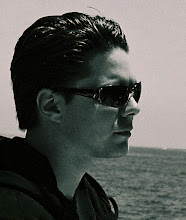An unavoidable side-effect of atheism is lack of belief in an afterlife. There exists no scientific reason to believe that any shred of self-awareness or thought remains of us after death. This is what scares so many people away from atheism. They don't want to die. Not for real.
I don't exactly want to die either, but I no longer fear my own death. I fear the pain that may lead to death, I am saddened at the thought of the pain that my loved ones might suffer because of my death, but the thought of death itself is simultaneously a comfort and a motivator for me.
I like living in a universe where the only constant is change. I like knowing that everything dies eventually. No matter how messed up things get, it's only temporary. Everything changes. Everything dies. Once I learned to accept that concept instead of struggling against it, I found it oddly soothing. My own insignificance and transience reminds me to just live and experience life in the best way I know.
At the same time, it motivates me to do it. I'm on the clock, as it were. There is no Heaven where I'll see all of my dreams come true. If I want them to come true, I have to make it happen. And I have to make it happen sooner rather than later.
But my own paltry offerings aside, some other thinkers have given us excellent perspectives on death in a godless universe.
Dale McGowen, author of Parenting Beyond Belief, tells the story of explaining death to his children. He does a fine job, using terms they understand to express a quote attributed to Mark Twain: "I do not fear death. I had been dead for billions and billions of years before I was born, and had not suffered the slightest inconvenience from it."
George Hrab wrote a song about it when his dog died. His sentiment was that, even though he felt immense pain and sorrow at the loss of his friend, he was thankful that his friend would be spared that same pain and sorrow. His dog would never miss him the way he missed his dog. Often, a husband or wife will wish for their own death before that of their spouse in fear of their own weakness in the aftermath. This is the reverse of that, taking the burden of surviving from the loved one as an act of true and noble affection.
Death causes pain, without question. At times, it seems unfair that we are denied eternity. The fact is, though, that we are mortal. No matter how deeply we feel that pain, there are honest consolations for a rational mind to help soothe the grief. We needn't lie, even to children. Over time, one's own death seems almost inconsequential compared to the death of loved ones. Greater love hath no man.
Subscribe to:
Post Comments (Atom)







2 comments:
I cannot recall whom I heard the quote from, or what the exact quote was, but it did strike me as having a nice ring of theoretical likelihood to it.
True eternal life would be a horrible punishment. It might be nice at first, even for 100-1000 years, but eventually life would get stale I suspect, heck, I've even experienced that, and I'm not nearly 100. 1000 years is even a comparatively short time, compared to eternity, how stale would life be after 100,000 years, or a billion years, how enjoyable would things be as the universe wound down to heat exhaustion, and stars died?
I suppose most mythologies pre-suppose that your eternal life will take place in some fantastical paradise, but even given that, it is hard to imagine somewhere that I would want to spend 10E100 years, which is still a pitifully short number of years, compared to ETERNITY.
That article by Dale McGowan is very good, I might want to read that book.
Post a Comment